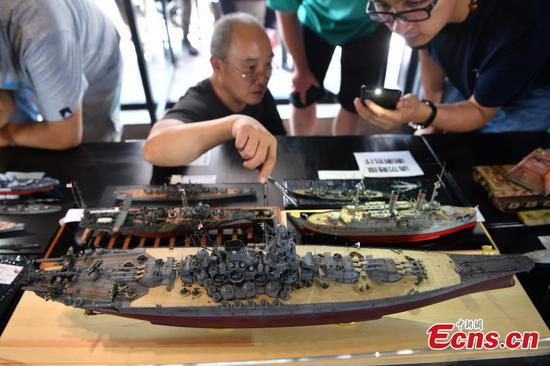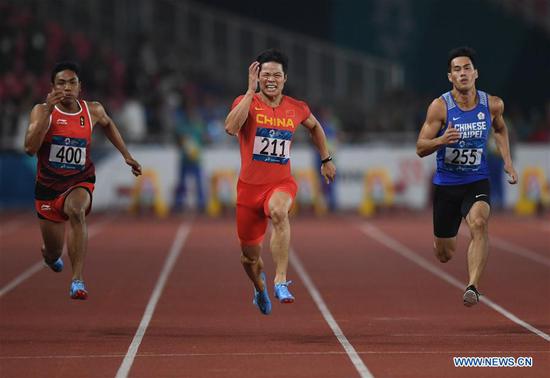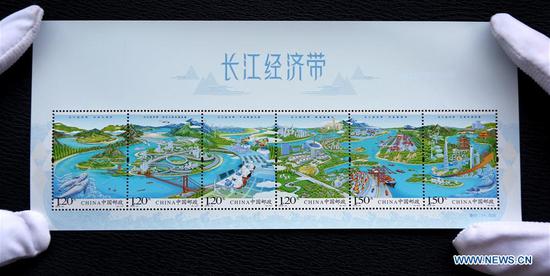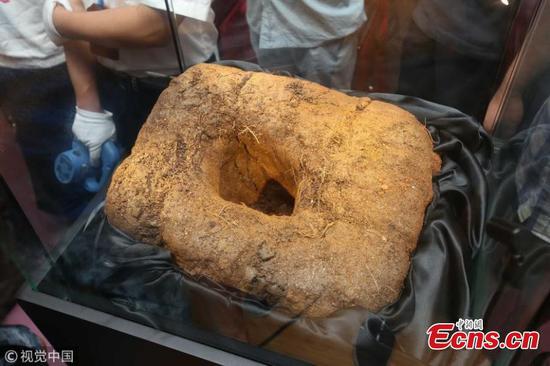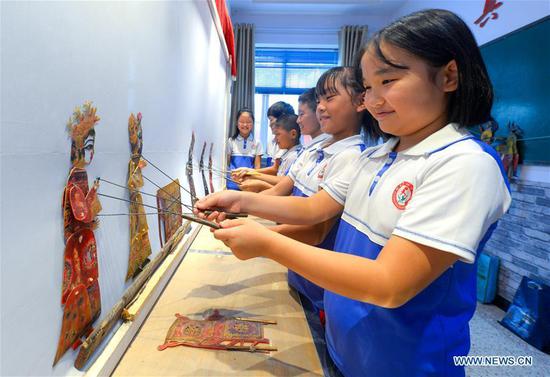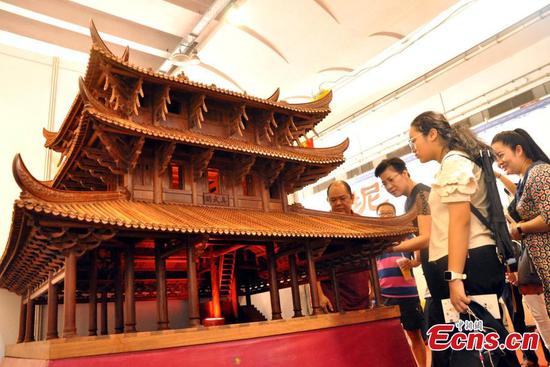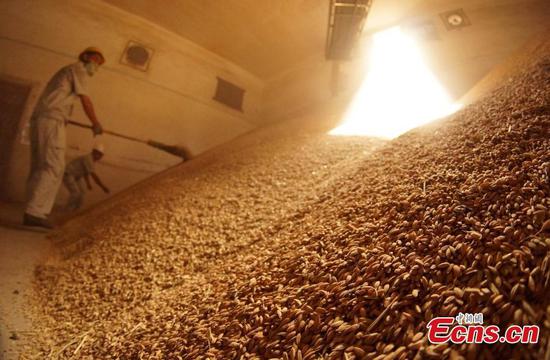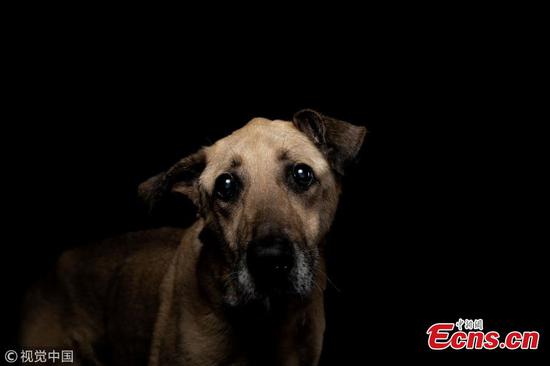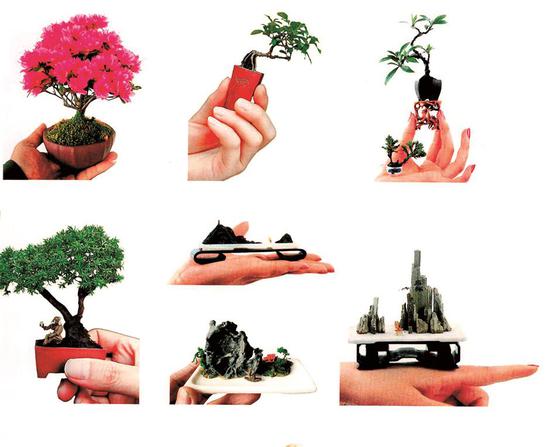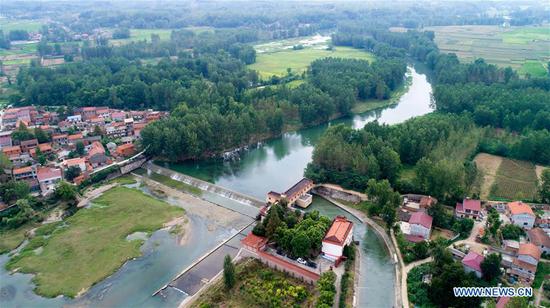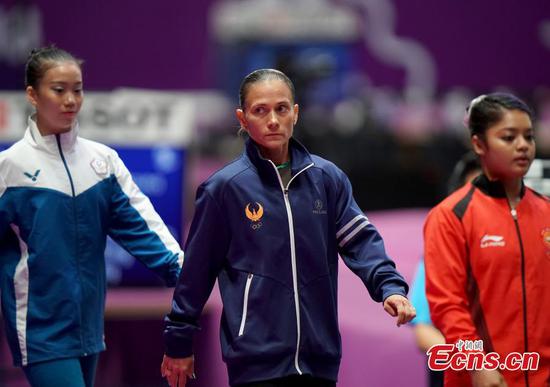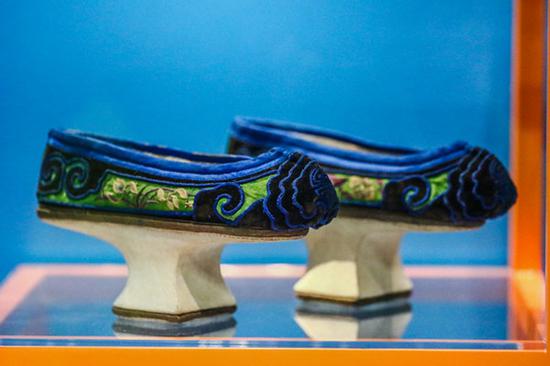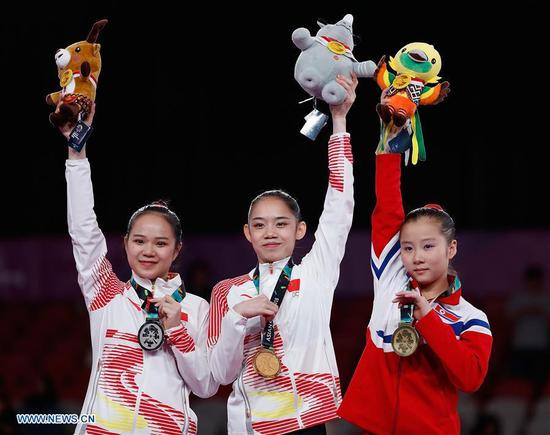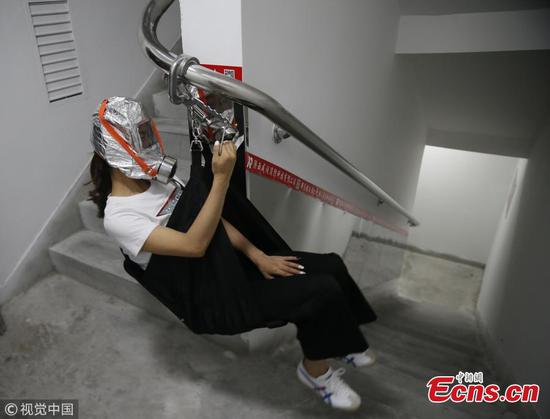Geely's JVs ride B&R, energize auto and spares businesses, expand footprint
Since the first assembled-in-Belarus Geely Atlas rolled off the production line on Nov. 17 last year, BelGee, the Sino-Belarusian automaker, has seen a surge in sales. It makes three vehicle models and has sold 3,000 units since then, with 2,000 of them exported to Russia alone.
In fact, 70 percent of the vehicles BelGee makes are exported, mostly to Russia, with the rest sold in Belarus.
"As our only plant in eastern Europe, BelGee is very important in terms of Geely's overseas development strategy. It will anchor the future expansion of Geely in this region," said Cheng Wen'an, vice-president of production at BelGee.
To implement its go-global strategy as part of China's Belt and Road Initiative, Zhejiang Geely Holding Group Co Ltd teamed up with four companies to form BelGee, the first Sino-Belarusian automotive joint venture.
BelGee was formed in 2011 with a registered capital of $53.46 million. It entailed total investment of $330 million so far.
BelAz, a Belarusian manufacturer of mining dump trucks of heavy-duty and super-size load capacity, is the largest shareholder of BelGee with a 52.49 percent stake, followed by Geely Holding Group, which owns a 33.36 percent stake.
In September 2017, the first phase of construction of a BelGee plant to make completely knocked down or CKD units was finished, covering an area of 92 hectares.
The plant contains welding, painting and assembly shops. Located between Borisov and Zhodino in Belarus, the plant started production in July this year.
Its maximum production capacity is expected to be 60,000 units per year in the first phase and 120,000 units in the second phase.
The plant currently employs less than 1,000 people and will create over 1,700 jobs when it starts running at its full capacity during the first phase of the project. About 98 percent of the employees will be local residents.
"BelGee is the first plant in Belarus to assemble sedans. It has strategic significance. Before Geely came here, we could only produce farm and mechanical vehicles," said Gennady Svidersky, Belarusian first deputy industry minister and the acting director-general of BelGee.
He also said the Belt and Road Initiative will harness synergies of China and Belarus and will expand the market for both countries.
"In addition to the plant, we will have a growing number of auto parts manufacturers. So our government has paid high attention to this project and is looking forward to its success," he said.
He said he hopes through the introduction of Geely, Chinese auto parts companies in Taizhou in Zhejiang province will set up factories in Belarus to sell locally produced auto parts to Russia.
To promote the development of auto parts manufacturers in Belarus, Geely has formed several joint ventures with Belarusian companies. Besides creating new jobs, these ventures produce and assemble relevant products, including auto engines, exhaust pipes, radiators and seats. The localization rate of production and assembly has reached 50 percent.
The Chinese-Belarusian automaker has assembled three third-generation refined automobile models, namely the Atlas (NL-3), a Geely flagship SUV, which is also known as Bo Yue in other markets, the Emgrand X7 (NL-4), another SUV of the Chinese brand, and the Emgrand 7 (FE-3), an affordable luxury sedan.
The Atlas went on sale in Russia in February in three versions-standard, comfort and luxury-at prices ranging from 1.05 million rubles ($15,678) to 1.41 million rubles.
In view of the strategic opportunities for development presented by the Belt and Road Initiative, privately-owned Chinese automotive brands should not seek to expand globally merely to sell more cars, said An Conghui, president of Zhejiang Geely Holding Group, at the launch ceremony of the Atlas last year.
"Thinking about the long term, Geely has changed its idea of 'go-global' from simply exporting vehicles to developing a strategic global industrial layout of products, technologies, talents and capital.
"Based on this understanding, Geely has embraced a 'go-in' philosophy by leveraging its internal strengths, giving play to its comparative advantages, and participating deeply in local industrialization to develop a strategic global industrial layout," An said at the function.
In 2017, Geely Holding Group's sales rose 33 percent year-on-year to 278.2 billion yuan ($40 billion), with profit rising 61 percent to 18.8 billion yuan.
"We hope to achieve annual production and sales of 3 million vehicles by 2020 and become one of the world's top 10 automotive groups," said Song Zhaohuan, public relations director of Geely Holding Group.









